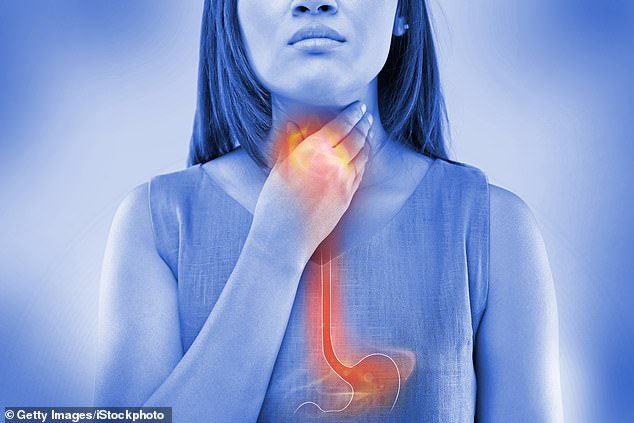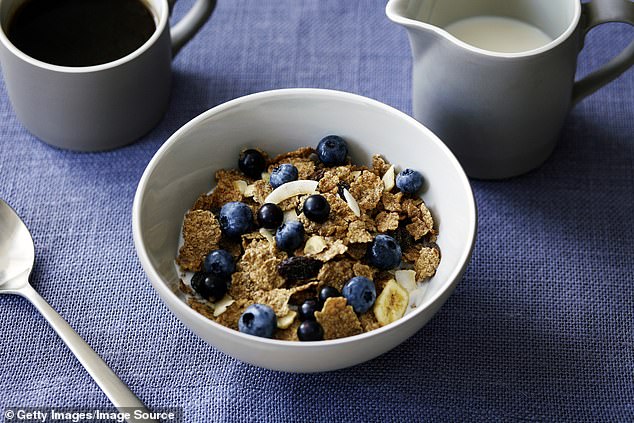Do you skip breakfast in favor of a coffee on the go? You’re not alone: one in five of us regularly goes without anything more than a caffeine fix until lunch.
However, experts warn that the habit could leave you with an uncomfortable health problem.
Coffee, in addition to helping you feel less tired and more alert, also affects the balance of stomach acid levels.
As a result, drinking it without any food can cause painful indigestion and heartburn.
Experts say this can be easily fixed, not by avoiding caffeine altogether, but by eating some food along with your morning coffee.
Experts say the popular drink hits the stomach with a flood of acid that can cause agonizing indigestion and heartburn.

Caffeine stimulates the production of the hormone gastrin, which is responsible for our production of gastric acid.
Coffee is a naturally acidic beverage that can irritate your stomach lining, especially if you drink it on an empty stomach.
“Without acid-buffering foods, the stomach can respond by producing even more acid, leading to heartburn,” Rob Hobson, a registered dietitian with Healthspan and author of Unprocess Your Life, told MailOnline.
There are several components of coffee that can increase the acidity levels in our stomach.
Caffeine stimulates the production of the hormone gastrin, which is responsible for the production of stomach acid, said Boston-based gastroenterologist Dr. Supriya Rao. The Huffington Post.
While this helps start the digestion process, it also adds acidity to the stomach.
Plant-based compounds known as phenols, which are also abundant in coffee, also contribute to the acidity level of the intestine.
“Coffee has a pH level of about 5, while our stomach acid has a pH of about 2, making the latter more acidic,” Dr. Rao added. As a result, our stomach should be able to handle the acid that coffee consumption produces.

Experts say this discomfort can be easily remedied, not by avoiding caffeine altogether, but by eating some food along with your morning coffee.
But it’s not just the increasing levels of acidity that cause upper abdominal pain and nausea.
Mr Hobson explains that the caffeine in coffee can relax the lower esophageal sphincter, the valve that separates the stomach from the esophagus.
“When this valve relaxes, it allows stomach acid to flow more easily into the esophagus, causing the burning sensation commonly associated with heartburn,” he said.
He added: “Coffee also stimulates the production of stomach acid, which is more marked when consumed on an empty stomach.”
This theory has also been proven true by some studies, including one published in the Medical Library in 2022.
According to the survey, coffee can contribute to the relaxation of the lower esophageal sphincter, “allowing food to escape into the esophagus and cause heartburn.”
The effects can vary from person to person. For some people, the elevated levels of stomach acid caused by drinking coffee without food do not cause any problems, but for others, they cause discomfort.
If you suffer from heartburn, Mr Hobson suggests avoiding coffee and other triggers such as citrus fruits, chocolate and mint, as while eating foods with coffee may help, this depends on the type of food.
“Choosing lighter meals can also help reduce stomach acid and lower your risk of heartburn, as heavy, fatty foods take longer to digest, meaning more acid is produced,” she said.
She suggests eating toast, banana, nuts, rice cakes or whole grain crackers, which are better options to accompany coffee.
“It’s also important to note that drinking coffee with a meal, like tea, can interfere with the absorption of certain nutrients such as iron,” she added.
‘I would suggest avoiding coffee if you regularly suffer from heartburn, but if it is occasional then it may be better to drink your coffee with a light snack rather than a full meal, especially if consumed between meals.’

